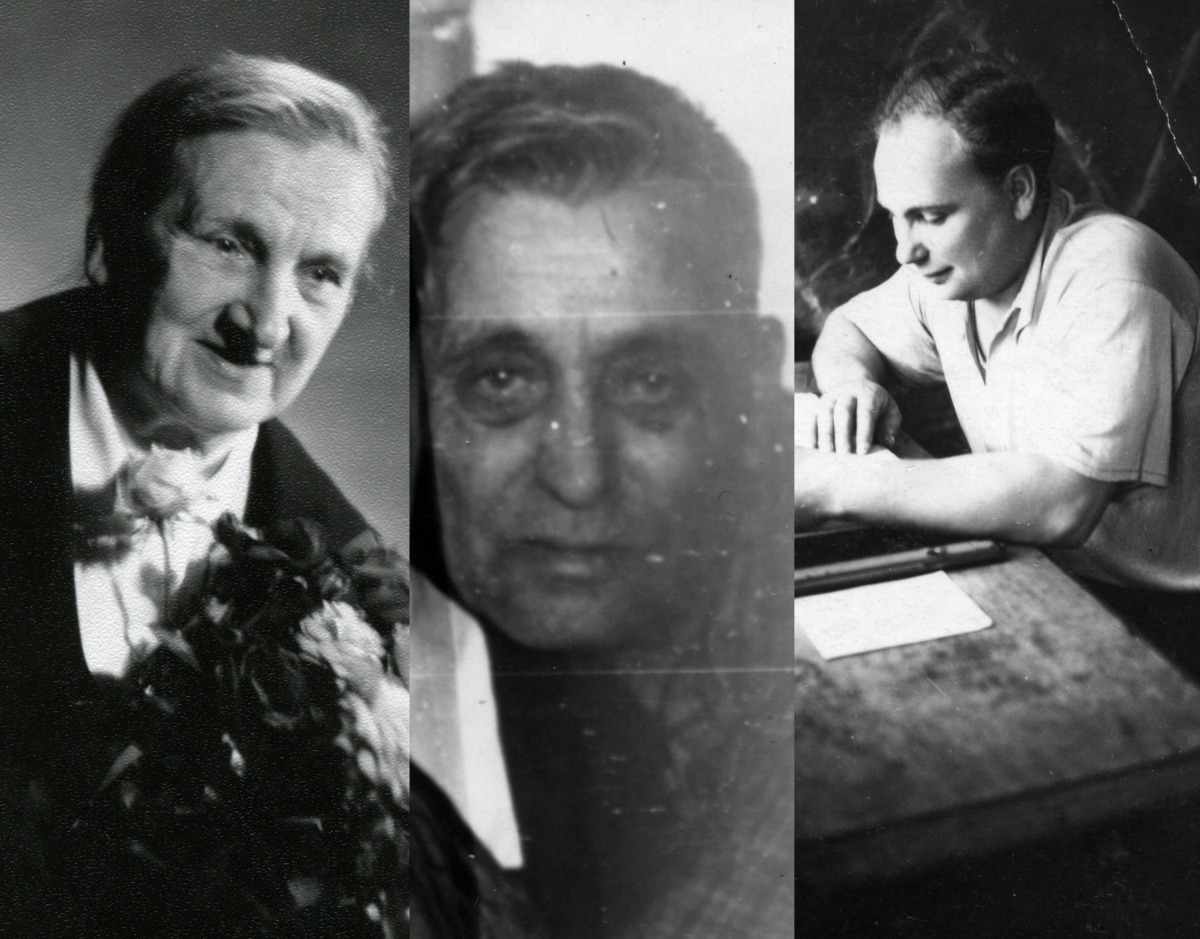THE ALLEY OF THE RIGHTEOUS: BRONISLAVA, JUOZAS AND PETRAS DAINAUSKAI |
← |
Published: 2021-03-15
BRONISLAVA DAINAUSKIENĖ
1902- 1989
JUOZAS DAINAUSKAS
1897–1969
PETRAS DAINAUSKAS
1923–1991
I see two women beside me. One of them is Miriam Meras, a Jew. She gave birth to me and enfolding me with her great motherly love guided me through early childhood, until the executioners’ gravel pit stopped her. The other is Bronė Dainauskienė, an illiterate Lithuanian, mother of six. Embracing me in both arms, she hid me from evil eyes, plucked me from the pit and gave birth again, to her seventh child, and secretly led me on in life to early adolescence.
Icchokas Meras
When the war broke out on 22 June 1941, Yehuda Meras (director of a Jewish folk bank of Kelmė in independent Lithuania and a cashier of a state bank in the Soviet time) with his wife Miriam and his children Yonina and Icchokas lived in Kelmė. Almost all the town burned down, including the house where the Meras family used to live. On 24 and 25 June the town was occupied by the Nazi army. Several days later armed local white armbanders, the so-called activists, took to violence against Jews. Men, including Yehuda Meras, were locked in Zundelis Luncas’ barn, whereas women and children were herded to a couple of Jewish homesteads located in the vicinity of Kelmė. Miriam Meras with her children was imprisoned in Shimon Osher’s (Šimonas Ošeris) farm in Mažūnai village. Yehuda Meras who had dared to stand up to the mocking by the white armbanders once, was beaten up and locked in the prison located at the gate of Kelmė Manor and later transported to Raseiniai. At the end of July 1941 he was shot in the vicinity of Raseiniai. On 29 July the majority of Kelmė Jews were shot to death, including the mother of Icchokas Meras, but Icchokas and his sister Yonina alongside a dozen of other Jewish children for some unknown reason were taken back to the barn. Icchokas Meras: ‘We stayed alive that day, I don’t know thanks to whom. Later a lot of people helped us and saved us, and if they did not, neither my sister nor I would have remained alive. They are Michalina Legantienė, Petronėlė and Adomas Urbelis, Bronislava and Juozas Dainauskas and their son Petras Dainauskas, Zofija Sankienė, Teresė Sankutė-Toliušienė.’ Michalina Legantienė was the first rescuer of Icchokas and Yonina. When an armed guard left the barn door unattended for a short while, local women took several Jewish children away with them. Michalina took Icchokas and Yonina to her home.
The rest of the children who were not taken to anybody’s home were shot during the second mass killings of Kelmė Jews on 22 August 1941. Legantienė kept Icchokas and Petronėlė Urbelienė-Unikauskienė sheltered his sister Yonina. For several days Yonina and Icchokas were hiding at the home of the farmer Zofija Sankienė and her daughter Teresė. When Legantienė could not keep the boy at her place any longer she asked her neighbours for help, but the scared neighbours passed Icchokas from one home to another and finally he ended up on the street. Icchokas was sitting at the threshold of somebody’s home and crying when Juozas Dainauskas was passing by. He took Icchokas by the hand and brought him home to his wife Bronislava Dainauskienė. This is how Icchokas became the seventh child in the Dainauskas family. The Dainauskas were very poor. They were short of food all the time. They faced danger every day and had to be aware of everybody around them. If somebody was spotted coming to their home, Petras Dainauskas, Juozas’ son, would fling Icchokas onto his back and run to the pine grove nearby where he had several hideouts equipped. Once policemen found Icchokas, but Petras said: ‘Let them kill me but let the child alone.’ Petras was always nearby in order to help in case of danger. Bronislava Dainauskienė became a second mother to Icchokas: she both saved his life and shared her motherly warmth with him. Bronislava Dainauskienė took care of Icchokas as if he was her child. The Dainauskas continued to hide Icchokas until 6 October 1944 when the Red Army broke through the front line. Icchokas stayed with the Dainauskas even after the war, that is until 1946.
From: Whosoever saves a single life, saves an entire universe
Vilna Gaon Museum of Jewish History, Vilnius, 2019
| ↑ | ← |









